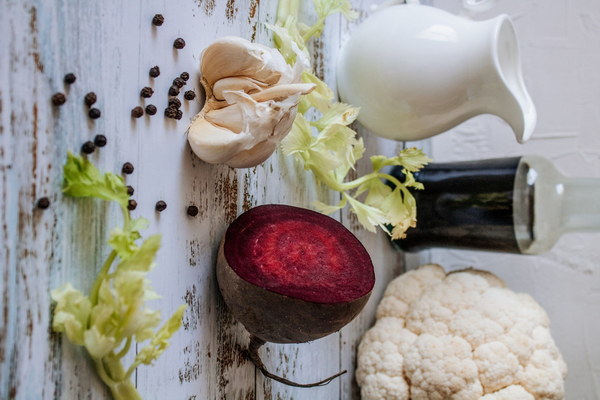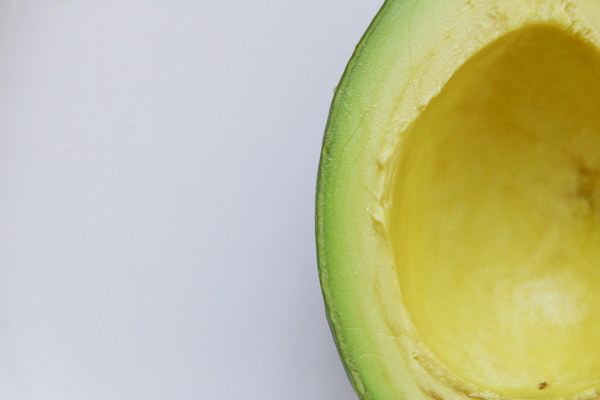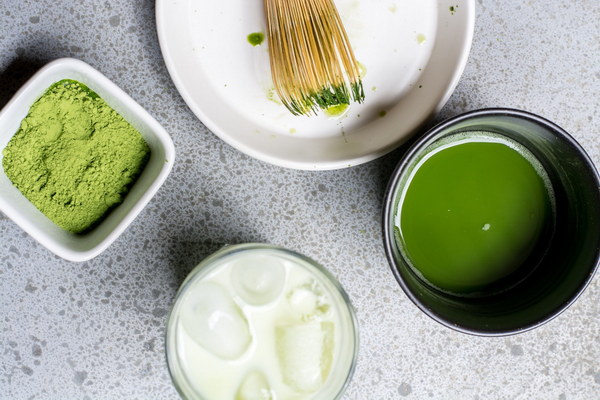Nourishing the Body, Healing the Mind A Comprehensive Exploration of Traditional Chinese Dietetics and Medicinal Cuisine
In the realm of holistic health and wellness, Traditional Chinese Medicine (TCM) has long been revered for its profound understanding of the human body and its intricate relationship with nature. One of the key components of TCM is dietetics, which emphasizes the importance of consuming the right foods to maintain health, prevent illness, and promote healing. This article delves into the fascinating world of TCM dietetics and medicinal cuisine, exploring their principles, benefits, and practical applications.
TCM dietetics is based on the concept of Yin and Yang, the fundamental forces that govern the balance of the body and the natural world. According to this philosophy, each food possesses its unique properties, which can either nourish or disrupt the balance of Yin and Yang within the body. By understanding the properties of different foods, individuals can tailor their diets to address specific health concerns and achieve optimal well-being.
One of the core principles of TCM dietetics is the idea of food as medicine. This concept is rooted in the belief that certain foods have therapeutic properties that can treat or alleviate various ailments. For example, ginger is known for its warming properties, making it an excellent choice for those suffering from colds and flu. Similarly, seaweed is rich in iodine and other minerals, making it beneficial for thyroid health.
Medicinal cuisine, on the other hand, takes TCM dietetics a step further by incorporating herbs and spices into culinary dishes. These ingredients are not only flavorful but also possess healing properties that can be harnessed to address a wide range of health issues. One classic example is the Sour Soup, which is believed to stimulate digestion and boost the immune system.
The benefits of TCM dietetics and medicinal cuisine are numerous. For one, they promote a balanced and healthy diet that takes into account the individual's unique constitution and health needs. By understanding the properties of different foods and herbs, individuals can make informed decisions about their diet, leading to improved overall health and well-being.
Moreover, TCM dietetics and medicinal cuisine offer a unique approach to disease prevention and treatment. By addressing the root cause of illness rather than simply treating symptoms, TCM dietetics can lead to more sustainable and long-term health improvements. This holistic approach also encourages individuals to adopt healthier lifestyle habits, such as regular exercise and adequate sleep, further enhancing their overall well-being.

In practical terms, incorporating TCM dietetics and medicinal cuisine into one's daily routine can be as simple as making a few adjustments to one's diet. Here are some tips for getting started:
1. Familiarize yourself with the properties of different foods and herbs. This can be done by reading books on TCM dietetics, consulting with a TCM practitioner, or researching online resources.
2. Incorporate a variety of foods with different properties into your diet. For example, if you're looking to boost your immune system, you might include foods like garlic, ginger, and mushrooms in your meals.
3. Experiment with medicinal cuisine by adding herbs and spices to your favorite dishes. This can be as simple as adding turmeric to a curry or using ginseng as a tea base.
4. Seek guidance from a TCM practitioner to develop a personalized diet plan tailored to your specific health needs.
In conclusion, TCM dietetics and medicinal cuisine offer a valuable and time-honored approach to maintaining health and well-being. By embracing the principles of TCM and integrating these practices into daily life, individuals can enjoy the benefits of a balanced, nourishing diet that promotes healing and prevents illness. As the world continues to seek out more holistic and sustainable health solutions, the wisdom of TCM dietetics and medicinal cuisine is sure to remain a valuable resource for generations to come.









